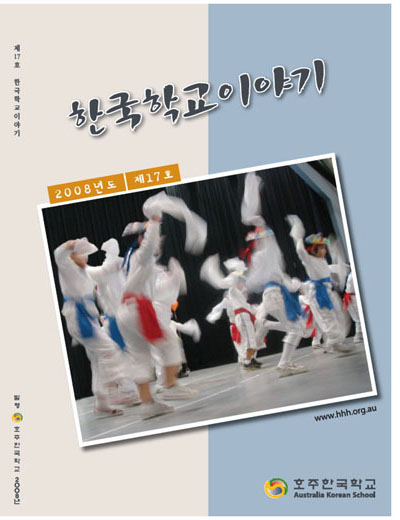나는 어떻게 12학년까지 호주한국학교에 다니며 한국어 공부를 했나.
장원익 (21. 맥콰리대학교 4학년,법 전공)
– 아래 글은 2024년 7월 6일 1학기 종업식에서 후배들에게 들려준 스피치 내용임.
I’ve been asked to give you a quick rundown on time management and balancing your responsibilities. This talk is mainly for senior secondary school students, although it can be useful as you prepare for secondary school or selective or OC schools.
A question that’s commonly asked is ‘Will I have enough time to pursue my HSC and Korean School in Year 11 and Year 12?’ Although this is a question that comes to mind very quickly, it’s not the correct question to ask. The correct question is ‘Is Korean School worth attending during Year 11 and Year 12?’
To answer this question, I’d like to rely on the Three Cs. These Cs are Career, Credit, and Childhood.
Career
Learning Korean serves two distinct career purposes: a functional purpose and a fun purpose. Korean is the native language of 81 million speakers, making it the 16th most spoken language in the world. The Republic of Korea, or South Korea, is an advanced economy which serves as the hub of numerous international corporations and various cultural movements with profound impact. Basically, Korea has Samsung and K-pop.
In our modern world, we’ve developed translation technologies which can bridge linguistic gaps. However, these tools cannot replicate natural fluency. A translator is awkward no matter the species, and direct communication permits a closeness not yet achievable through technological means. Learning Korean allows you to engage with those aforementioned 81 million speakers, and the recency of Korea’s global presence means that this particular bilingual combination is valued.
Of course, Korea’s place as a cultural powerhouse also means that knowledge of Korean marks you out as a fellow traveller to enjoyers of Korean media. Even if you don’t know anything about the latest mass-manufactured girl group, your peers will be more than happy to fill in the gaps. As an adult, any opportunity for small talk is valued, and a shared interest serves as a common ground from which to develop a deeper professional relationship.
So, those are the two principles of your career. It’s functional, as it can serve you in a way a translator cannot yet replicate; and it’s fun, since it gives you a common ground with admirers of Korean culture.
Credit
The most important thing first: some schools offer ATAR points if you’re enrolled in an eligible second-language school. Check with your school and with your Korean School to determine your eligibility and application procedures. The difference between a 96.95 and a 99.95 is pretty serious.
One important thing is that these bonus points rest on attendance, not performance. During a year of the endless treadmill, it’s nice to take a couple of hours off on a Saturday to follow a secondary task. A little bit of focus time can really help you. If you’re always on, you’ll find ways to keep yourself on with the least effort possible. Breaks and breathers are valuable. Breaks and breathers that give you ATAR points are begging to be taken.
Childhood
The human brain stops developing at the age of 25. Whether or not this is strictly true, it is true that the learning capacity of the human brain is severely diminished by your late 20s. Language acquisition is fastest in infants, slower in toddlers, sluggish in adolescents, and borderline eternal as an adult. The best time to learn Korean was years ago and the second-best time is now. Also, if you think you’ll wait until the busy part of your life is over (that is, the HSC), get real. Life only gets busier as you get more responsible. It’s best to prepare for that with skills that can be deployed in the real world, like a foreign language.
As another part of childhood, you’ve probably run into people who speak Korean as a child. Your parents, maybe. Your grandparents, a man who runs a shop, a woman who lives down the street. If you want to feel the rush of learning to read for the first time, learn a second language. There are over 100,000 Korean Australians with whom you can experience the rush of speaking with via their own tongue for the first time.
So, learn it quick. There’s psychological reasons, chronological reasons, and potential new friends to be made.
Conclusion
Career, Credit, and Childhood. In your Career, the Korean language opens up opportunities in business and opportunities in cultural common ground. For your Credit, the Korean School you attend may allow you to earn extra ATAR points from attendance, not performance, and serves as a welcome respite in the years of the HSC. Finally, it’s your Childhood. It’s easier to learn it earlier, and the rewards you reap will be all the greater the sooner you begin.
So, the question again. ‘Is Korean School worth attending during Year 11 and Year 12?’ The value it provides is significant. Consider it; it might be the most important choice you make in these years.



